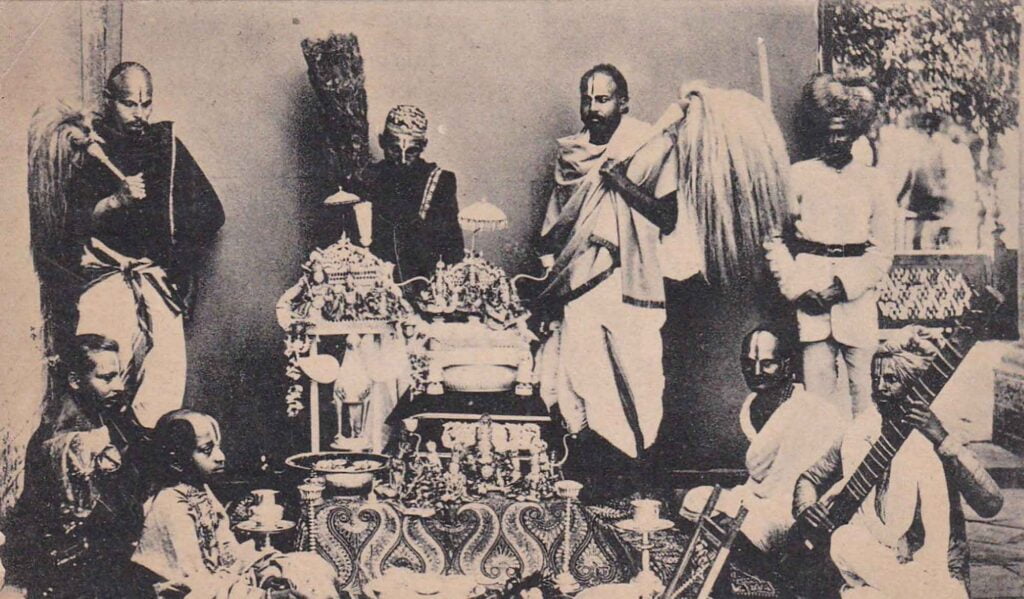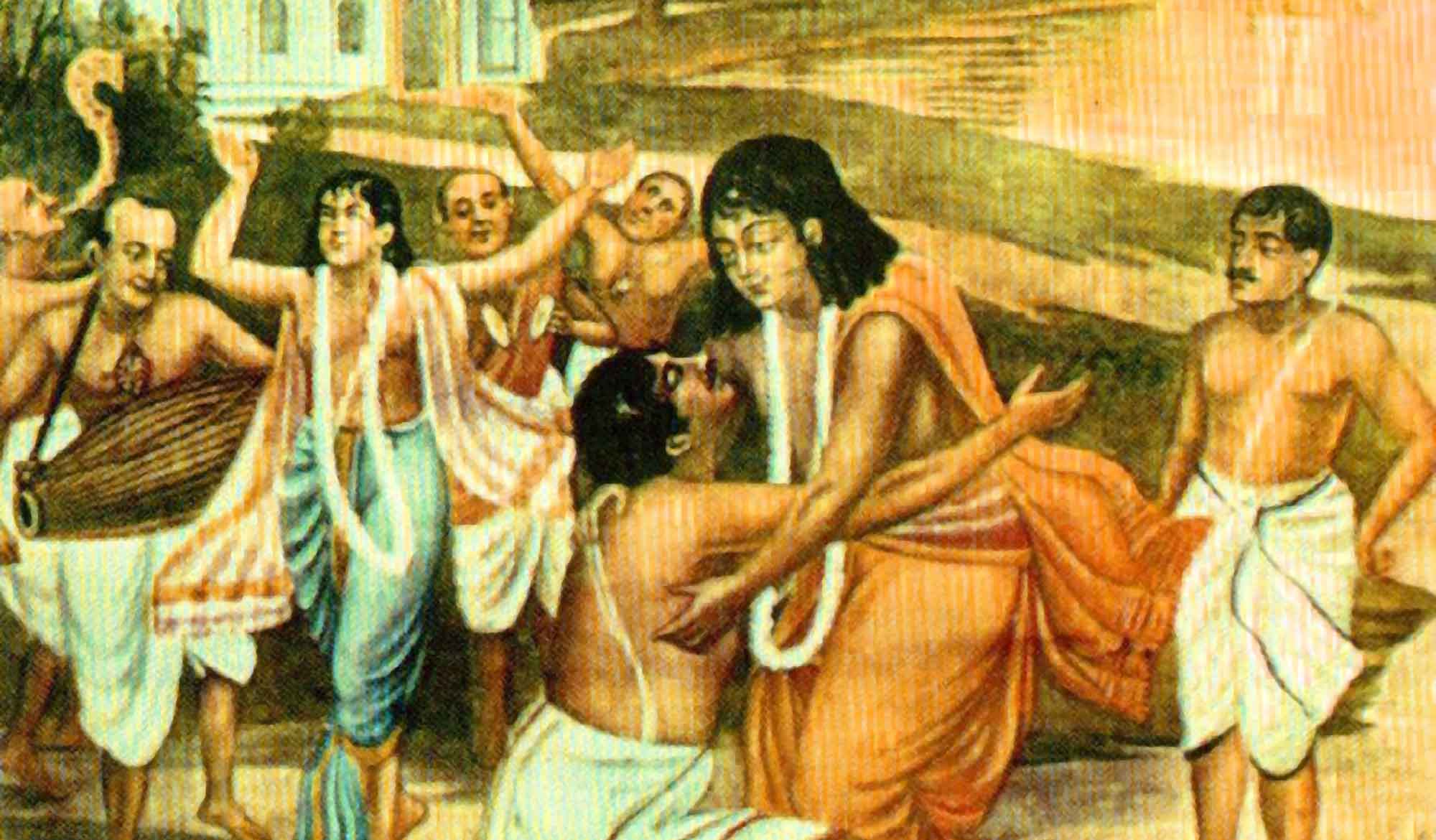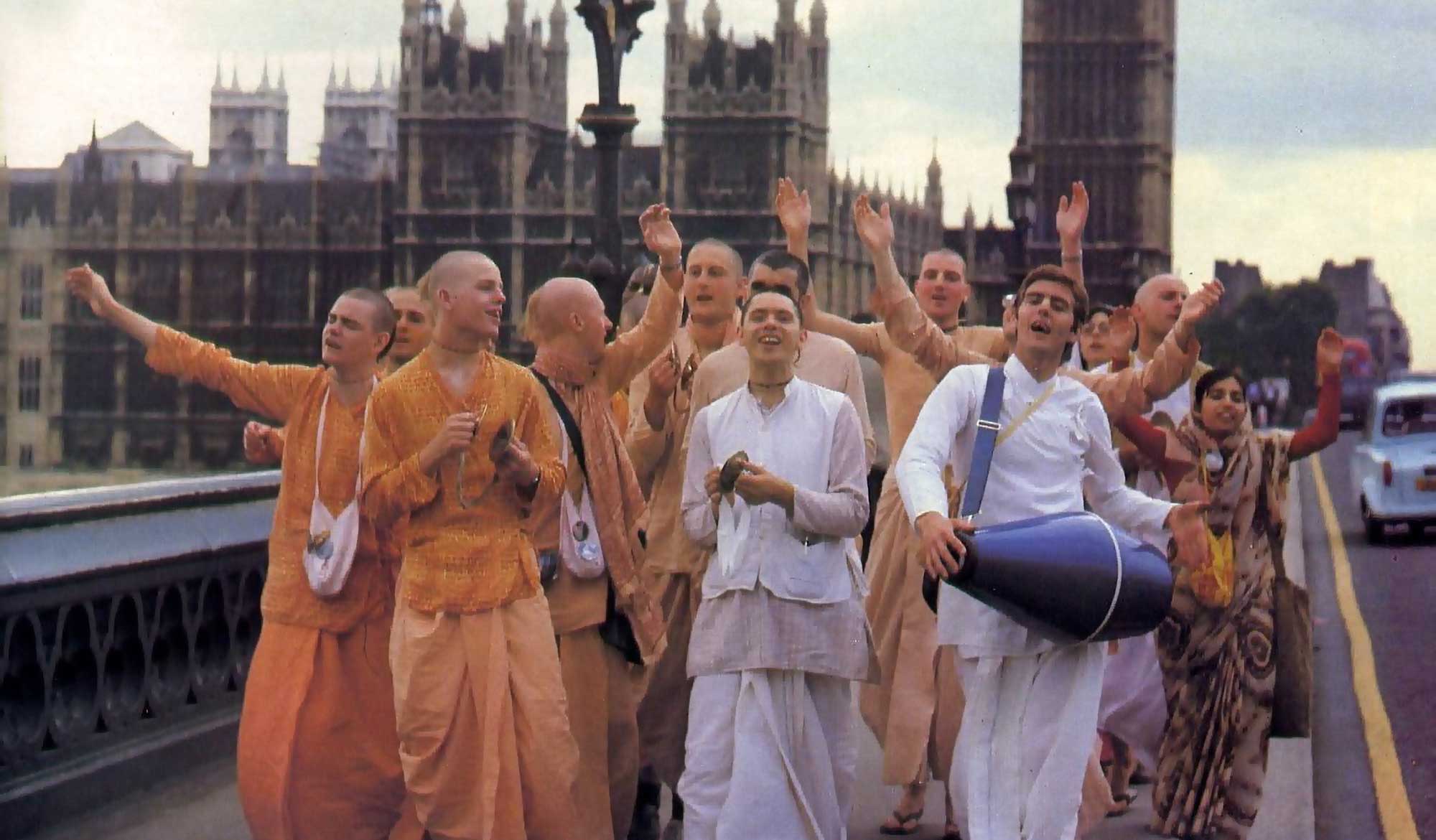Overview
In the process of devotional service, Dhairya (Patience) is an absolute necessity. Bhaktivinoda Ṭhākura discusses this point in this article from Sajjana Toṣaṇi, Vol.10.
For the practitioner of devotional service, dhairya, patience, is extremely necessary. Those who possess the quality of dhairya are called dhīra, sober. Due to lack of this quality, men become restless. Those who are impatient cannot do any work. By the quality of dhairya, a practitioner controls first himself and then the whole world. In the first verse of Śrī Upadeśāmṛta the symptoms of dhairya are explained:
vāco vegaṁ manasaḥ krodha-vegaṁ
jihvā-vegam udaropastha-vegam
etān vegān yo viṣaheta dhīraḥ
sarvām apīmāṁ pṛthivīṁ sa śiṣyāt
“A sober person who can tolerate the urge to speak, the mind’s demands, the actions of anger, and the urges of the tongue, belly, and genitals is qualified to make disciples all over the world.”
There are six types of urges: namely, the urges of speech, mind, anger, belly, tongue, and genitals. With a desire to speak more, a person becomes talkative. If speech is not regulated, then enmity arises from talking about others. To speak uselessly is the business of a fool; but out of a desire to unnecessarily engage in speech the materialists always waste time and face so many distresses. Pious people observe mauna-vrata, or silence, in order to get rid of this disturbance. That is why the ṛṣis have made provisions for observing various vows like mauna-vrata. The practitioners of devotional service should not speak unnecessarily. If you do have to speak unnecessarily, better to keep quiet. Besides topics regarding Kṛṣṇa, all other topics are unnecessary. But to speak about the subjects favorable to devotional service is not unnecessary. Therefore, devotees should speak only on topics about Lord Hari or those favourable to such topics. All other topics will be counted in the category of the urge to speak. On who is able to control the urge to speak is a sober person.
It is the duty of a sober person to tolerate the urge of the mind. Until one is habituated to control the urge of the mind, how can one perform devotional service with attention? A materialist sits in the chariot of the mind and never gets relief from its various urges, except during sleep. Even during sleep many thoughts such as good and bad dreams come. In order to regulate the urges of the mind, ṛṣis have propounded aṣṭāṅga-yoga and rāja-yoga. But the Lord’s prescription is that one should regulate the mind from the inferior tastes by giving it a higher taste. Those who are on the path of devotional service can easily regulate the mind. The mind cannot remain without urges. If urged towards spiritual subjects, the mind is properly engaged and it will not hanker for insignificant subjects. Many people think that without aṣṭāṅga-yoga there is no alternative to regulate the mind. But Patañjali Muni has accepted that just as aṣṭāṅga-yoga regulates the mind, bhakti-yoga can also. Meditation on the Supreme Lord as propounded by Patañjali is not pure devotional service, rather it is sakāma-bhakti, or motivated. If devotional service is performed for the purpose of regulating the mind, then it is certainly not devoid of material desires. Favourable cultivation of devotional service in relationship to Kṛṣṇa is the real meaning of pure bhakti. Therefore, whenever pure devotional service is performed, joyfulness of the mind automatically arises from amongst extraneous fruits. Śrīmad Bhāgavatam (7.1.32) states:
tasmāt kenāpy upāyena manaḥ kṛṣṇe niveśayet
“Somehow or other, one must consider the form of Kṛṣṇa very seriously.”
If one follows this instruction, then the mind will be engaged at the lotus feet of Kṛṣṇa and it will not easily wander into other subjects. For the practitioner, the urge of the mind is regulated by pure cultivation of favourable devotional service in relationship to Kṛṣṇa. By carefully meditating on this subject, one can know the inherent differences between yoga and bhakti.
To restrain the urge of anger is compulsory for those who are thirsty for devotional service. Anger arises when a man’s lust is unfulfilled. When one is angry the result gradually leads one to ruination. It is said in Śrī Caitanya-caritāmṛta (Madhya 19.149):
kṛṣṇa-bhakta-niṣkāma, ataeva ‘śānta’
“Because a devotee of Lord Kṛṣṇa is desireless, he is peaceful.”
No insignificant lust can remain in the heart of one who relishes pure devotional service. Therefore, there is no possibility of anger arising in his mind. Those whose devotional service is motivated cannot conquer anger. It is not possible to conquer anger by intelligence alone. In a very short time attachment for sense enjoyment overcomes the function of the intelligence and gives anger a place in its kingdom. It is seen in the song of the Avanti brāhmaṇa from the Śrīmad-Bhāgavatam (11.23.33-35, 37, 40) that he was able to quickly control anger.
taṁ vai pravayasaṁ bhikṣum
avadhūtam asaj-janāḥ
dṛṣṭvā paryabhavan bhadra
bahvībhiḥ paribhūtibhiḥ
“O kind Uddhava, seeing him as an old, dirty beggar, rowdy persons would dishonour him with many insults.”
kecit tri-veṇuṁ jagṛhur
eke pātraṁ kamaṇḍalum
pīṭhaṁ caike ‘kṣa-sūtraṁ ca
kanthāṁ cīrāṇi kecana
pradāya ca punas tāni
darśitāny ādadur muneḥ
“Some of these persons would take away his sannyāsī rod, and some the water-pot which he was using as a begging bowl. Some took his deerskin seat, some his chanting beads, and some would steal his torn, ragged clothing. Displaying these things before him, they would pretend to offer them back but would then hide them again.”
annaṁ ca bhaikṣya-sampannaṁ
bhuñjānasya sarit-taṭe
mūtrayanti ca pāpiṣṭhāḥ
ṣṭhīvanty asya ca mūrdhani
“When he was sitting on the bank of a river about to partake of the food that he had collected by his begging, such sinful rascals would come and pass urine on it, and they would dare to spit on his head.”
kṣipanty eke ‘vajānanta
eṣa dharma-dhvajaḥ śaṭhaḥ
kṣīṇa-vitta imāṁ vṛttim
agrahīt sva-janojjhitaḥ
“They would criticize and insult him, saying, “This man is just a hypocrite and a cheat. He makes a business of religion simply because he lost all his wealth and his family threw him out.”
evaṁ sa bhautikaṁ duḥkhaṁ
daivikaṁ daihikaṁ ca yat
bhoktavyam ātmano diṣṭaṁ
prāptaṁ prāptam abudhyata
“The brāhmaṇa understood that all his suffering-from other living beings, from the higher forces of nature and from his own body-was unavoidable, being allotted to him by providence.”
That Avanti mendicant then spoke the following verse in the Śrīmad-Bhāgavatam (11.23.57):
etāṁ sa āsthāya parātma-niṣṭhām
adhyāsitāṁ pūrvatamair maharṣibhiḥ
ahaṁ tariṣyāmi duranta-pāraṁ
tamo mukundāṅghri-niṣevayaiva
“I shall cross over the insurmountable ocean of nescience by being firmly fixed in the service of the lotus feet of Kṛṣṇa. This was approved by the previous ācāryas, who were fixed in firm devotion to the Lord, Paramātmā, the Supreme Personality of Godhead.”
This parātma-nista, being firmly fixed in the service of the lotus feet of Kṛṣṇa, is sometimes followed by householders like Janaka and sometimes by sannyāsīs like Sanaka and Sanātana. In both circumstances the parātma-nista is the same. Without this parātma-nista one cannot cross the insurmountable ocean of nescience. Service to Lord Mukunda is the only shelter; one will be delivered by accepting that. We can clearly see from this song of the Avanti brāhmaṇa that it is impossible to cross the material ocean by the process of yoga. By unflinching devotion to Kṛṣṇa, everything is achieved. One who can control the urges of speech, mind, and anger by devotional service is called dhīra.
It is everyone’s duty to subdue the urge of the tongue. Materialistic persons are always busy trying to enjoy the six kinds of tastes by chewing, sucking, and so on. “Today I will enjoy spiced rice with non-veg, today I will endeavour for kicari, today I will enjoy the finest drinks.” Hankering like this, the materialist always wanders. The more the tongue eats, the more its hankering increases. For those who wander for the pleasure of the tongue, attaining Kṛṣṇa is very difficult. Śrī Caitanya Mahāprabhu has said in the Caitanya-caritāmṛta (Antya 6.225-227):
vairāgī hañā kare jihvāra lālasa
paramārtha yāya, āra haya rasera
vaśa
vairāgīra kṛtya—sadā nāma-saṅkīrtana
śāka-patra-phala-mūle udara-bharaṇa
jihvāra lālase yei iti-uti dhāya
śiśnodara-parāyaṇa kṛṣṇa nāhi pāya”
“If a renunciate is eager for his tongue to taste different foods, his spiritual life will be lost, and he will be subservient to the tastes of his tongue. The duty of a person in the renounced order is to chant the Hare Kṛṣṇa mantra always. He should satisfy his belly with whatever vegetables, leaves, fruits, and roots are available. One who is subservient to the tongue and who thus goes here and there, devoted to the genitals and the belly, cannot attain Kṛṣṇa.”
One should fill his belly with whatever is easily available. By offering Kṛṣṇa foods in the mode of goodness and honouring them as prasāda, the tongue is satisfied and service to Kṛṣṇa is cultivated. If palatable prasāda is easily available, then the tongue’s greed will gradually be controlled rather than increased.
The urge of the belly is a disturbance. The requirement of the stomach is to eat for the maintenance of the life and mitigation of hunger. Those who are thirsty for devotional service should maintain their life by moderate eating. Those who endeavour to overeat are called gluttons. One of the qualities of devotees is mita-bhuk, eating what is necessary. By eating less, the body remains healthy and does not disturb one’s devotional service. Those who have no strength to tolerate the urge of the stomach are always greedy to eat. Those who are firmly convinced that nothing can be eaten besides kṛṣṇa-prasāda are especially able to tolerate the urge of the belly. Restrictions like fasting on prescribed days are also models of instruction for controlling the urge of the stomach.
The urge of the genital is formidable for persons who are averse to the Lord. In the Śrīmad-Bhāgavatam (11.5.11) it is said:
loke vyavāyāmiṣa-madya-sevā nityā hi jantor na hi tatra codanā
“In this material world the conditioned soul is always inclined to sex, meat-eating, and intoxication. Therefore, religious scriptures never actually encourage such activities.”
The purport of this statement from the Śrīmad Bhāgavatam is confidential. Those who possess a material body made of flesh and blood are always inclined to associate with women. To minimize this inclination, the marriage ceremony is recommended. Those who wish to get free from the codes of marriage are almost like animals. But those who have crossed beyond the rules of this natural inclination by the association of devotees and the strength of their service and have thus attained attraction for spiritual subject matters, for them associating with the opposite sex is very insignificant. Persons who are filled with attachment for material enjoyment can nver tolerate the urge of the genital. Many of them engage in illicit activities. Regarding this propensity, those who thirst for devotional service are divided into two groups. Those whose attraction has been purified by the strength of sādhu-saṅga give up the association of women altogether and continually engage in devotional service. Persons in this group are known as renounced Vaiṣṇavas. Those whose propensity for associating with women has not been destroyed accept the codes of marriage and remain as householders while engaging in devotional service. Associating with women as prescribed in the scriptures means to control the urge of the genitals.
When one properly tolerates the above mentioned six urges, that is favourable for his devotional service. And when those urges are strong, that is unfavourable for one’s devotional service. To subdue these six urges is called dhairya. As long as one has a material body these propensities cannot be totally uprooted, but by properly engaging them in their appropriate subjects they no longer remain faulty. Therefore, Śrī Narottama Dāsa Ṭhākura has written in his Prema-bhakti-candrikā as follows:
kāma, krodha, lobha, moha, mada, mātsarya, dambha-saha
sthāne sthāne niyukta kariba
ānanda kari’ hṛdaya, ripu kari’ parājaya
anāyāse govinda bhajiba
kāma’ kṛṣṇa-karmārpaṇe, ‘krodha’ bhakta-dveṣī jane
‘lobha’ sādhu-saṅge hari-kathā
‘moha’ iṣṭa-lābha vine, ‘mada’ kṛṣṇa-guṇa-gāne
niyukta kariba yathā tathā.
“I will engage lust, anger, greed, illusion, madness, envy, and pride in appropriate ways, and by defeating these enemies I will feel happiness in my heart as I peacefully worship Govinda. I will engage lust by offering it in Kṛṣṇa’s service. Anger I will direct towards those who are envious of the devotees. I will be greedy to hear the topics of Hari in the association of devotees. I will feel illusioned without achieving my worshipable Lord. I will be maddened while singing the glories of Kṛṣṇa. In this way I will engage these enemies in their proper places.”
The confidential meaning of this song is that the duty of an intelligent person is to direct these urges away from their respective subjects and make them favourable to devotional service. That can only be done with patience.
There is another meaning applicable to the word dhairya. Those who engage in sādhana desire to attain the results. Karmīs hope to attain heavenly happiness by fruitive activities; jñānīs hope to attain liberation by speculative knowledge, and devotees hope to please Kṛṣṇa by their devotion. Being impatient due to prolonged sādhana, some people fall from the path to the ultimate goal; therefore, a practicing devotee who desires to achieve his goal attains that result only when he becomes patient. “Kṛṣṇa must be merciful to me either today or after one hundred years or in some other birth. I will take shelter of His lotus feet with determination and never leave.” This type of dhairya, patience, is most desirable for the practitioners of devotional service.
(‘Dhairya – Patience’ by Śrīla Bhaktivinoda Ṭhākura was first published in Sajjana Toṣaṇi, Vol.10.)













